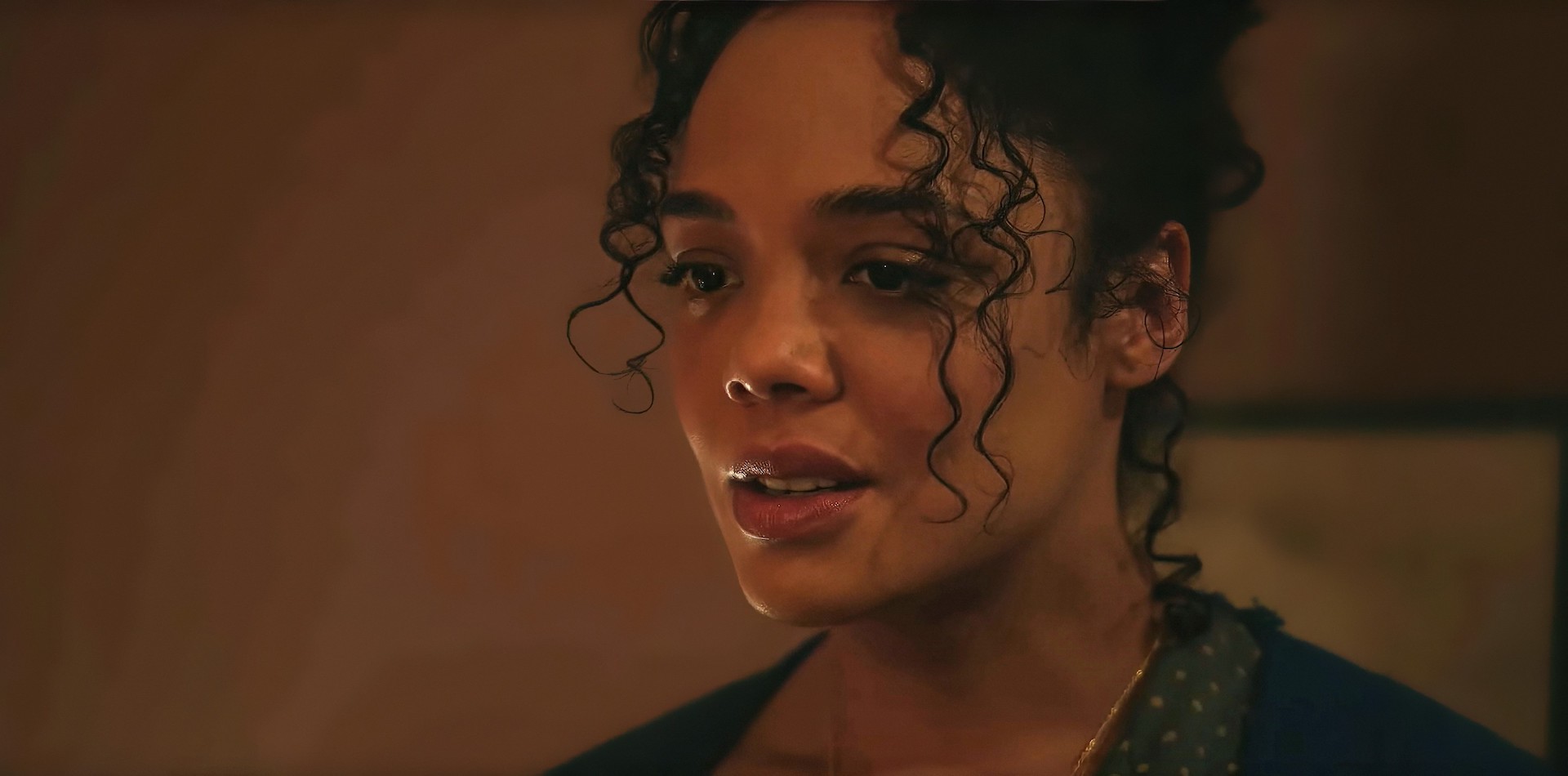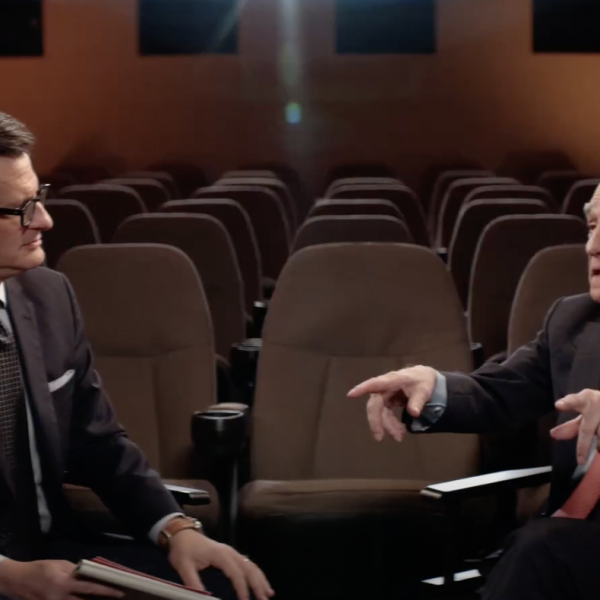It’s always fascinating when a movie with a top star, and directed by another star, goes as far under the radar as Steve Buscemi‘s “The Listener,” starring Tessa Thompson, has.
But in the case of this particularly gentle movie — available on VOD now for $6.99 — maybe that’s part of its DNA. Like the mental health helpline operator Thompson plays, this is a movie that’s there if you need it: Quiet, thoughtful, and totally shunning the kind of splashiness that most movies are thought to require these days to stand out.
“The Listener” premiered at the Venice Film Festival in 2022, where it was the closing night film of the Venice Days sidebar. On April 13, it was the closing night film of the Sarasota Film Festival, out of competition — in this over 18-month festival journey, it’s also made stops at the festivals in Vienna, Thessaloniki, Stockholm, The Hague, and Tribeca. And on March 29, it finally hit VOD.
The film takes place almost entirely in a small L.A. bungalow during one long night in which Thompson begins a shift as a helpline operator taking call after call from people who are desperate, anxious, angry, or just need someone to listen. She makes it clear at one point that she’s not an analyst. Like the hospital chaplains in last year’s empathetic masterpiece “A Still Small Voice,” she’s there simply to listen. In that documentary, one of the chaplains says, “People always say, ‘Don’t just stand there, do something!’ But we invert that and say, ‘Don’t just do something, stand there.’” That could describe the approach of Thompson’s character, Beth, too.
She takes call after call, but the camera stays only on Beth, never cutting to who’s on the other end of the line: There’s Logan Marshall-Green as a guy who recently got out of prison and jokes about the strangeness he feels wearing a mask when shopping (this is very much a Covid movie) because he previously a wore a mask to rob a place; Alia Shawkat as someone dealing with anxiety who Beth encourages to turn her ramblings into poetry and comes back with a pretty stunning rap; and Rebecca Hall as a sociology professor contemplating taking her life that night. Hall’s character gets the most time — about 25 minutes of this 96-minute film — and there’s an obvious chemistry Thompson and Hall have. They had just finished shooting Netflix’s Sundance hit “Passing” when they made this film.
Some of these vignettes don’t quite work, or just suddenly end, and there’s a feeling that some of the conversations are plug-and-play interchangeable. But the screenplay from Alessandro Camon, who earned an Oscar nomination for his script with Oren Moverman for “The Messenger,” always prioritizes empathy over sensationalism. And Thompson’s performance is remarkably contained: Buscemi’s camera is essentially locked on her for the entire running time, usually in close-up, so, as she doesn’t always want to tell the people coming to her for help what she really feels, subtle details of her performance indicate her emotional state. When one criminally disturbed guy tells her about a revenge porn scheme he initiated, Thompson still keeps her face blank, but the camera follows her hand as she reaches for a stress ball and gives it a squeeze.
It’s fascinating just to watch Thompson during all these calls, sometimes sketching images from the conversations in her notebook, sometimes looking out a window or staring off into space, or making herself a cup of coffee. It feels very natural, even as she and Buscemi clearly needed careful planning to make such a contained, dialogue-driven movie cinematic. When Shawkat’s character announces she thinks she can tell what people on the phone smell like — and that Thompson’s Beth smells like “a fluffy cloud” — it’s during a 40-second stretch where Thompson’s back is to the camera, and we don’t see her expression at all. That’s a moment the late David Bordwell would love, as he talked at length about the expressive possibilities of back-to-the-camera acting (as in Kurosawa’s early film “The Most Beautiful”).
By the time you finish watching “The Listener,” it’s hard not to have a real affection for Beth’s environs: the Tiffany lamp over her kitchen table, the orange Lynchian glow of a desk light, the front porch where she takes much of her call with Hall’s character. This is the kind of stillness and smallness of detail that can stick with you.
Double Feature Recommendation: Pair “The Listener” with Sydney Pollack’s debut film from 1965, “The Slender Thread,” which is streaming on Hoopla with a subscription, and available for rent at $3.99 everywhere else. It’s a very similar premise, though it ends up going much more in the direction of a thriller: Sidney Poitier plays a psych student who moonlights as a suicide prevention helpline operator and takes a call from a despairing Anne Bancroft. In this case, the entire movie is this one conversation as Poitier not only tries to keep Bancroft engaged but also to give emergency workers enough time to trace her call and save her in time.
There is a ticking clock: She’s just taken a lethal dose of pills when she begins her conversation with Poitier. In “The Slender Thread” you do see the other end of the call, as well as flashbacks to incidents Bancroft describes — a moment where she desecrates a little makeshift burial mound for a dead seagull on the beach, is particularly memorable — and it’s all scored by Quincy Jones in one of his early film composing efforts. “The Slender Thread” did get two Oscar nominations (for Art Direction and Costume Design), but in every sense it’s a film that made little impact at the time of its release. But it’s strong enough that, though usually just packaged as the B-movie flipside of double features in 1965, it’s developed a following over the decades. Maybe the same will be true of “The Listener.”





